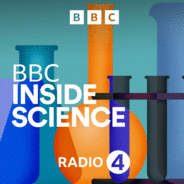Artificial intelligence is the big talking point of the week, with UK PM Sir Keir Starmer announcing a drive to unleash its full potential. It’s already being used in healthcare, but recent studies have exposed both strengths and weaknesses. We’re joined by Dr James Kinross, a surgeon and researcher at Imperial College London, to discuss the positives and the pitfalls. Also this week, we talk all about what a Trump presidency might mean for science; why powerful winds are driving the deadly fires in LA – and anyone for science-optimised pasta? Marnie is helped by a physicist to make the perfect Cacio e Pepe. Spoiler alert: Recipe below!Presenter: Marnie Chesterton
Producers: Sophie Ormiston & Gerry Holt
Editor: Martin Smith
Production Co-ordinator: Jana Bennett-Holesworth To discover more fascinating science content, head to bbc.co.uk search for BBC Inside Science and follow the links to The Open University.Science-backed Cacio e Pepe: For two servings:
- 240 g pasta
- Black pepper
- 160 g pecorino cheese
- 4g corn starch in 40ml water Dissolve the corn starch in water and heat until it forms a gel. Let this cool before combining it with the cheese and black pepper. Cook the pasta, then drain, keeping some of the water. Let it cool then mix the pasta with the sauce. Enjoy!

Wissenschaft & Technik
BBC Inside Science Folgen
A weekly programme that illuminates the mysteries and challenges the controversies behind the science that's changing our world.
Folgen von BBC Inside Science
641 Folgen
-
Folge vom 13.02.2025UK AI & science-optimised pasta
-
Folge vom 06.02.2025Science in 2025How will science shape up in 2025? Marnie Chesterton is joined by a panel of science watchers to discuss what we can expect from the year ahead. We'll talk big science, small science - and the plain cool. What will science do for us in the coming year? On the Inside Science panel, we have: - Tom Whipple, science editor of The Times - Shaoni Bhattacharya, former acting science editor of The Observer & freelance editor at Research Professional News - Penny Sarchet, commissioning editor at New Scientist Presenter: Marnie Chesterton Producer: Gerry Holt Editor: Martin Smith Production Co-ordinator: Jana Bennett-Holesworth To discover more fascinating science content, head to bbc.co.uk search for BBC Inside Science and follow the links to The Open University.
-
Folge vom 30.01.2025The Science of LaughterWhy do we laugh more when we’re with others? Are humans the only animals that laugh? Does ‘laughter yoga’ actually do anything? We're delving into the neurobiology, evolutionary history, and health effects of a good old chuckle.Live from the Hay Festival Winter Weekend, Marnie Chesterton is joined by laughter expert and neuroscientist, Professor Sophie Scott, and an expert in making people laugh, comedian Miles Jupp, in this side-splitting panel show.Presenter: Marnie Chesterton Producer: Ella Hubber Editor: Martin Smith Production Co-ordinator: Jana Bennett-Holesworth To discover more fascinating science content, head to bbc.co.uk search for BBC Inside Science and follow the links to The Open University.
-
Folge vom 23.01.2025Board Game ScienceIt’s that time of the year when many of us are at home with friends and family, losing track of time, eating leftovers, and, of course, playing games. This festive season, we look at the science of games and, of course, play some ourselves. It’s presenter Marnie Chesterton versus producer Florian Bohr at Marnie's kitchen table.... Who will win the Inside Science games special?Irving Finkel from the British Museum tells Marnie about the Royal Game of Ur, one of the most ancient board games which is strikingly similar to more modern examples of race games. Also, why we play games with author and neuroscientist Kelly Clancy, and why we struggle to comprehend the randomness of dice with author Tim Clare. To finish it off, mathematician Marcus du Sautory explains the geometry behind the game Dobble and leaves listeners with a Christmas puzzle: Can you figure out the symbols on the two missing Dobble cards? If you think you’ve found the solution, please email insidescience@bbc.co.ukPresenter: Marnie Chesterton Producers: Florian Bohr Editor: Martin Smith Production Co-ordinator: Jana Bennett-Holesworth To discover more fascinating science content, head to bbc.co.uk search for BBC Inside Science and follow the links to The Open University.
